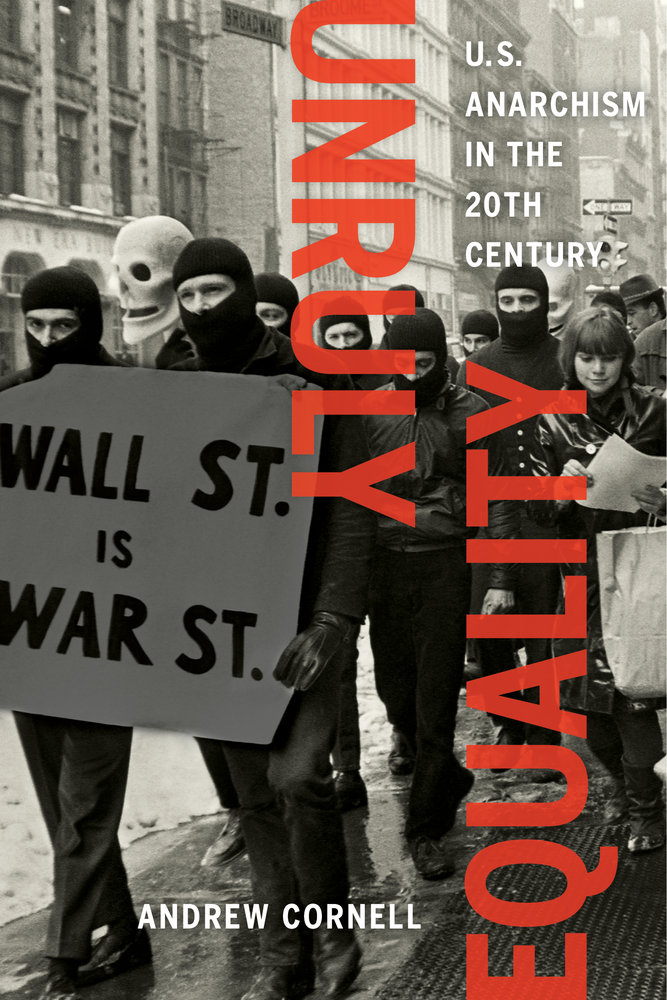Part One
Transitions
No matter how one feels about it, the current state of anarchism has represented something of a mystery: What was once a mass movement based mainly in working class immigrant communities is now an archipelago of subcultural scenes inhabited largely by disaffected young people from the white middle class.

Andrew Cornell’s Unruly Equality: U.S. Anarchism in the Twentieth Century supplies the first convincing account of that transition. Beginning in 1916, just before the Red Scare, and closing in 1972, just as our present movement was taking shape, the book serves as “a prehistory of contemporary anarchism.” Giving particular attention to the middle decades when anarchism seemed to disappear, Cornell uncovers a missing history and finds “a clear line of continuity rather than a defined break.” The line he traces is continuous, but it is not straight. There may not be a gap, but there was most certainly a turn.
#AndyCornell
Coming of Age: A Review of Unruly Equality: U.S. Anarchism in the Twentieth Century, by Andrew Cornell (University of California Press, 2016), by Jeremy Louzao
I was 15, living in a suburban middle-class part of Anchorage, Alaska, when the subversive package arrived—my first committed step on the anarchist path.
It was the winter of 1996, and maybe just six months before, some anecdotes from a beloved radical teacher got me curious about a thing called anarchism. Soon enough, I was doodling circle-As in the margins of my notebooks. Then I was trying, through brute force, to make my way through Howard Zinn and Noam Chomsky. Then—oh, the most cliché gateway into anarchism for kids of my demographic—I found punk rock. And there, in the insert of one of my first punk albums, I learned about AK Press. Brandishing a 56k modem, a phone, and a few hundred dollars that I got once a year from Alaska’s strange, oil-based dividend checks, I ordered a load of literature and odds and ends: Anarchy by Errico Malatesta. Living My Life by Emma Goldman, The Ecology of Freedom by Murray Bookchin, something about participatory economics by Michael Albert; Situationist pamphlets and grassroots organizing manuals; tiny punkish pins and a slew of garish t-shirts crammed with ironic faux-corporate logos, stenciled fists, and slogans in block letters. I’ll admit that, for a little while, I just basked in my new consumer identity as an anarchist. Then I actually read the stuff and, Wow, I really was an anarchist! From that cacophonous, often inscrutable, mix of texts, I found a personal worldview, ethics, even a spirituality that came to guide the course of my life.
